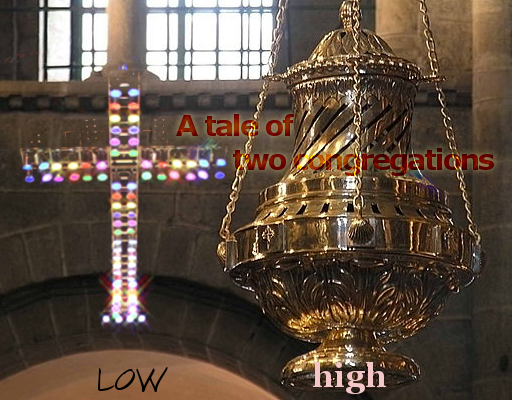Church services usually include times of prayer, where someone will come to the front and make a few petitions. In liturgical settings, there will be a call and response such as “Lord, in your mercy, hear our prayer”; in more charismatic settings, there will simply be shouts of “Amen!” coming from the congregation.
These prayers of thanksgiving and of petition for the world can be more formulaic than liturgy. Some churches recommend that they follow a pattern: pray for the world, for the church, for potential mission partners, for the Queen, for local leaders, etc. While such guidance is useful, it can lead to intercessions becoming a checklist.

Background photo: Ben Harris, reused under CC license
When it turns into something that has to be “done”, it also turns, for the congregation, as something that has to be gone through. The perverse effect can be that, on top of making intercessory prayer something deeply unattractive, “doing” the intercessions will mean, for some in the congregation and maybe even for the person doing them, that chore is done for the week ahead.
I believe intercessory prayer is something deeply personal, because it must come from the heart.
So, should we stop having a time for intercessions at church? By no means! But rather than “doing” intercessions, whoever’s in charge should lead the congregation into intercessory prayer. This means:
- being aware of this. When you’re leading the intercessions, you’re not in charge of interceding on behalf of the whole church. If there are bits you forget, then it’s not the end of the world.
- slowing down. Prayer is not an exercise in wordiness (nor is it one in brevity). But by slowing down, you are giving the congregation the opportunity to take in the prayer and make it their own.
- not being afraid of silence. In pauses, people can think of specific situations or people that they wish to pray for personally.
- being explicit about the congregation’s role. This can be done through more or less explicit instructions (“As we call to mind …”), through the use of call and response, etc.
- prayerful preparation. We do not know how to pray as we ought – that’s a given. And rambling prayers are good prayers, but they’re unlikely to lead others into prayer.
- realising that there is a movement in intercessory prayer. Particularly, if intercessory prayer is an alignment of our will with God’s will, then contemplating God at the start explicitly can help.
If you’re not called to lead intercession (and if you are, too!), I’d also like to encourage you to re-read these points: when the leader should give opportunities, you should take them. Maybe, even if someone is doing the intercessions rather than leading you into them, you can then still participate.
Stop doing the intercessions. Start leading people into intercession.



 Photo credits: Wikimedia users
Photo credits: Wikimedia users 